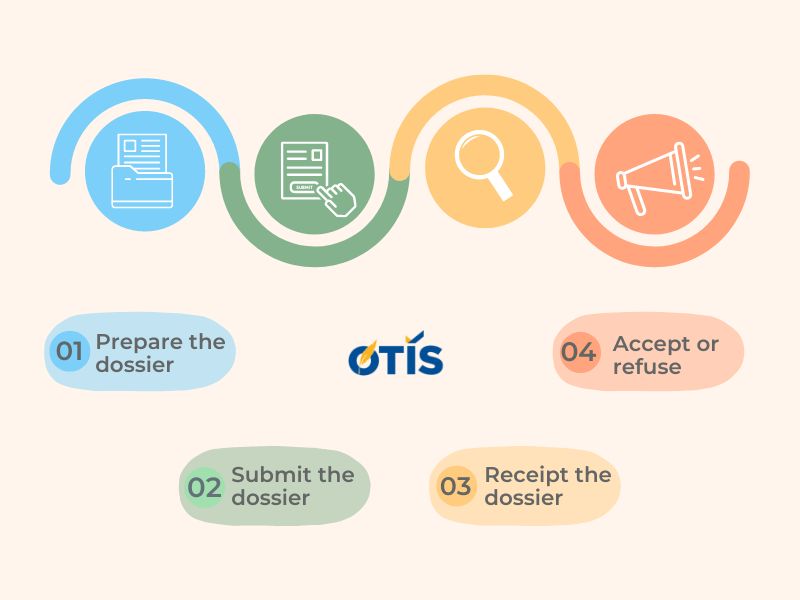Commercial franchise is a less risky way to start a business compared to starting a new venture and building a new brand. It allows you to take advantage of an established brand with a position in the market, an existing customer base, and a successful business model. So what exactly is Commercial franchise? Let’s find out with OTIS LAWYERS in the following article!
Legal grounds
Decree 35/2006/ND-CP Detailing the Commercial Law on Franchise Activities.
What is a commercial franchise?
Franchise is a business model in which an individual or organization is granted the right to use the trademark of a product or service from a franchisor for a specified period of time. A prerequisite is that the franchisee must comply with the agreements of the franchisor.
Franchising can be understood as a connection between manufacturers to transfer and receive methods of producing and selling products and services. The franchisor must transfer the entire franchise in terms of business format and management system. Additionally, the franchisee will be required to pay fees according to the agreement stipulated.
Advantages and disadvantages of Commercial franchise
Advantages
The advantages of carrying out franchise operations include:
– Brand and reputation have been established in the market;
– Easy access to existing customer base;
– The business model has been tested and proven successful;
– Easy access to the existing support network of the franchisor;
– Utilization of the franchisor’s existing infrastructure;
– Lower cost and less risk compared to starting a business from scratch;
– Easy access to resources such as marketing, training, and operational expertise from the franchisor;
– Guided and supported by the franchisor to help ensure success…
Disadvantages
Despite the advantages mentioned above, franchise operations also have some disadvantages, including:
– Not having complete ownership of the trademark;
– The risk of companies failing within the franchise chain;
– Issues related to competition within the franchise chain;
– Lack of creativity in franchise business operations…
What are the conditions to be met when carrying out franchise operations?
Entrepreneurs when conducting franchise operations need to meet the following conditions:
For the franchisor
Based on Article 5 of Decree 35/2006/ND-CP, the trader is allowed to grant commercial rights when meeting the following conditions:
– The business system intended for franchising has been in operation for at least 01 year;
– In the case of a Vietnamese trader being the Primary grantee from Foreign Franchisors, that Vietnamese trader must have conducted business by franchising for at least 01 year in Vietnam before granting commercial rights again;
– Has registered commercial franchising operations with competent authorities;
– Goods and services of the franchising business do not violate any legal provisions.
For the franchisee
– Is a trader;
– Has registered the business in a field suitable to the subject of commercial rights.
(Article 6 of Decree 35/2006/ND-CP)
For goods and services in franchise operations
Article 7 of Decree 35/2006/ND-CP stipulates the following:
– Goods and services permitted to be franchised are those that do not belong to the list of prohibited goods and services for business;
– In the case of goods and services belonging to the list of goods and services restricted for business, or the list of goods and services subject to business conditions, enterprises are only allowed to conduct these activities after being granted a business license or equivalent documents by the competent management agency.
Procedures for registering franchise operations
Based on Article 20 of Decree 25/2006/ND-CP, the sequence and procedures for registering trademark franchising shall be carried out according to the following process:

Step 1: Prepare the dossier
Individuals must prepare a submission for registering the trademark transfer. The application file includes:
– A registration request form for trading rights according to the template provided by the Ministry of Commerce;
– An introduction to the trademark transfer according to the template defined by the Ministry of Commerce;
– Documents certifying:
- Legal status of the proposed transferor;
- Industrial property protection certificate in Vietnam or foreign countries (if any intellectual property rights have been transferred).
Note: If the above documents are expressed in a foreign language, they must be translated into Vietnamese and certified by a Vietnamese notary public or the representative office of Vietnam’s Diplomatic Service abroad, while complying with the legalization procedure of diplomacy according to Vietnamese law.
Step 2: Submit the dossier
Submit the dossier for trademark transfer registration to the competent state agency.
(Create an image of Article 18)
Step 3: Receipt the dossier
The competent authority will receive the submission. If the application is incomplete or invalid, within 2 working days from the date of receipt, the competent state agency will issue a notice requesting the proposed transferor to supplement or complete the application file.
Step 4: The competent state agency carries out registration/refuses to register the commercial franchise
Within 05 working days from the date of receiving the complete and valid application file, the competent state agency will carry out the registration of trademark transfer in the Register of Trademark Transfer and notify the trader of this registration in writing. In case of notice from the competent authority about the need to supplement or complete the submission and the proposed transferor still cannot complete the documents, the competent state agency may refuse to register the trademark transfer. This refusal must be notified in writing to the proposed transferor and the reason must be clearly stated.
Things to note when transferring commercial franchise
Cost of Commercial franchise
Each trademark will have different transfer costs, depending on the industry and its reputation. Usually, these numbers are quite high. At the same time, the cost of maintaining the contract each month is also not negligible. Therefore, the parties receiving the transfer should thoroughly calculate the transfer costs, as well as fixed monthly costs, especially in the early period to minimize potential risks.
Choosing the right brand
Before making a decision to receive the transfer, you should thoroughly research the market you are targeting. It is necessary to conduct market research, consumer preferences, research and evaluate the potential of the brand… to come up with the final selection.
Business location
A business location that is not suitable for your brand will also make your business unprofitable, no matter how popular that brand is. Therefore, the selection of business locations needs to be carefully considered and must be consulted carefully by the transferor. This affects not only the brand’s revenue but also its image.
Have a suitable advisor
In cases of lack of experience and basic knowledge, you can connect with a professional advisor to be supported during the process of implementing the Commercial franchise. The advisor must be experienced, capable, and recognized for their credibility. This person can help you answer any questions, support you in the preparation and procedures according to the law, and help you avoid potential risks.
Commercial franchise Advisory Services of OTIS LAWYERS

OTIS LAWYERS is proud to be a professional unit in the field of Commercial franchise advisory services. With a team of highly specialized lawyers, extensive experience, and a dedication to customers, we believe that we will provide our customers with the best, most professional, cost-effective and fastest service. We are committed to ensuring that all customer information is kept confidential and that customer benefits are always a top priority.
For any questions or comments, please contact:
OTIS AND PARTNERS LAW FIRM
Office address: K28 – Group K, Lane 68 Trung Kinh, Yen Hoa Ward, Cau Giay District, Hanoi
Email: info@otislawyers.vn
Hotline: 0987748111


 Tiếng Việt
Tiếng Việt 한국어
한국어 中文 (中国)
中文 (中国)